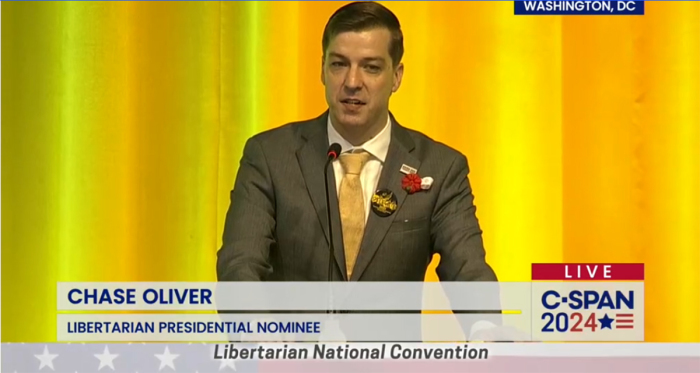9 candidates running for president in 2024

5. Chase Oliver
Chase Oliver, who unsuccessfully sought the U.S. Senate seat in Georgia in 2022 as a Libertarian, officially secured the Libertarian Party presidential nomination at the Libertarian National Convention in Washington, D.C., in May. He selected Mike ter Maat as his running mate. A previous version of his platform outlines his belief that “there can be good faith positions on both sides of the abortion debate.”
“I will work to encourage states to decriminalize abortions, as these decisions should rest in the hands of individuals and their doctors,” he said. “I will encourage the passage of the Hyde Amendment, which will prevent Federal dollars from funding abortion clinics.”
On the issue of education, Oliver expressed support for “abolishing the Department of Education and block granting those funds back to states to be returned to taxpayers.” Additional components of his platform call for abolishing qualified immunity for law enforcement, mandatory minimum sentences and the death penalty, as well as decriminalizing cannabis and issuing pardons for non-violent drug offenders.
According to Dave Leip’s Atlas of U.S. Presidential Elections, the Libertarian Party won 3.27% of the popular vote as part of Gary Johnson’s unsuccessful 2016 bid. In 2020, when Jo Jorgensen was the nominee, the party’s share of the vote dropped to 1.18%.
According to Ballotpedia, which describes itself as the encyclopedia of American Politics, the Libertarian Party has secured ballot access in 37 states with a combined 367 electoral votes, meaning the candidate appears on enough state ballots that he could theoretically secure the 270 electoral votes needed to win.
Ryan Foley is a reporter for The Christian Post. He can be reached at: [email protected]




























